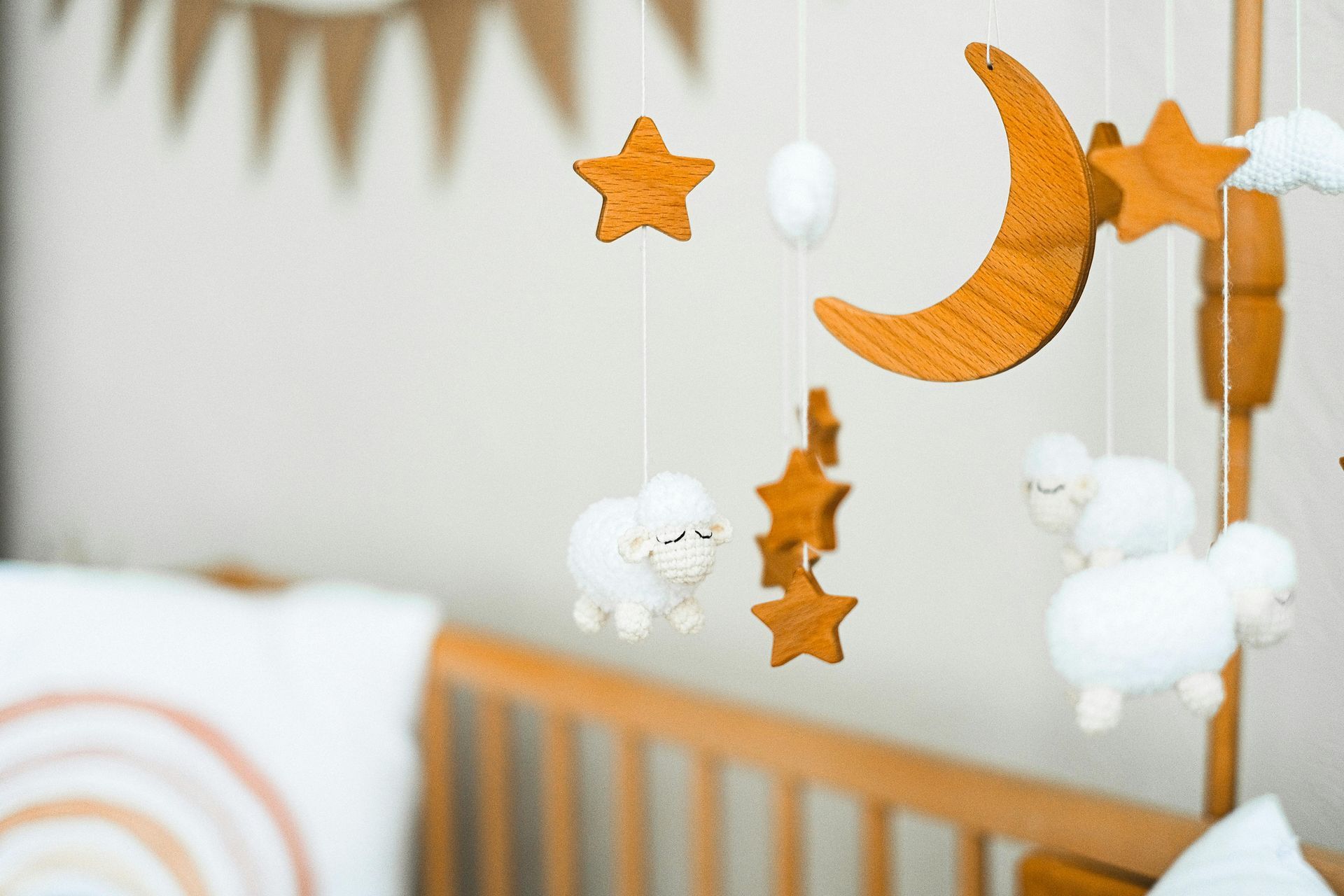When To Sleep Train A Baby
The question on most parent’s minds when their baby is yet to sleep through the night or is experiencing multiple night wakings. When can I start sleep training with my baby? Well the answer can really be quite simple - when you and the baby are ready! Of course there are a lot of nuances and considerations that come along with the sentiment of being ready for sleep training. Let’s talk through when it is developmentally appropriate to sleep train, what sleep training really entails and what you should be prepared for as a parent!
When is a Baby Developmentally Ready to Sleep Train
While some clinics might say that it is developmentally appropriate to sleep train starting after 4 months, most sleep consultants will recommend that you wait until 5 months to sleep train. Starting before your baby is developmentally able to understand sleep training methods put in place can cause frustration on both the baby and the parent’s end and delay progress. However, it depends on your goals with sleep training and we must understand what sleep training really means before deciding on the right time.
What Does Sleep Training Really Mean?
A lot of people associate sleep training with the ferber method and cry it out, which is just one form of sleep training. You can think of sleep training as an octopus, and the Ferber Method or “cry it out” as it’s often referred to as one of the tentacles or options when it comes to sleep training. I Love You More Sleep Solutions thinks of sleep training as parents helping their children reach their sleep goals through different methods. Every parent’s goals are different, some examples of those goals might be:
- Eliminating help getting to sleep and going back to sleep
- Eliminate night feedings
- Help extending naps
- Help making morning wakings later
- Helping a baby fall asleep independently
There are different methods that a sleep consultant might recommend to help each parent meet their sleep goals for their individual child. Every child and family is different and faces a different set of challenges when it comes to sleep and because of that, sleep training will mean something different for each family.
You Can Always Lay Down a Good Sleep Foundation for Newborns
At I Love You More Sleep Solutions we strongly believe that starting early helps lay a great sleep foundation for your little one. No, you can’t do the ferber method or skip night feedings with a newborn, but you can help them with routines and schedules that help lay down a good foundation with sleep. This foundation will help you tremendously when you are looking to help your child fall asleep independently. Following a good schedule, helping them learn to fall asleep independently and how to respond to night wakings from the beginning can help them with good sleep habits for later on.
When To Sleep Train Your Baby
If your baby is 4-5 months old and your family has decided that you’ve struggled with sleep long enough and are looking for some help, then it is time to sleep train. You can do research on different sleep methods and try and navigate it on your own, or you can work with a pediatric sleep consultant to help navigate sleep training. Either way, you should know that sleep is important for both baby and parents and you are doing the best thing you can for your family.
Some signs that your baby is ready for sleep training might be that they are experiencing some of the following:
- Struggling to fall asleep without excessive rocking, feeding, etc
- Frequent night wakings (more than 3 wakings after 4 months old)
- Elongated wakings at night (doesn’t feed and go right back down)
- Early wakings (waking before 6 AM or desired wake time)
- Struggling with short naps or cat napping
If you feel like any of this is something you are experiencing, you are certainly not alone! The world of baby sleep can be a lot and can be so isolating as a new or even experienced parent. But rest assured that your baby is capable of good sleep and you can get there with hard work and consistency.
How Long Does Sleep Training Take?
This depends! We know this is not the answer that sleep deprived parents are looking for but it really does depend on:
- Your baby's temperament
- Your consistency and dedication
- The sleep training method you choose
- Developmental milestones
- Outside factors (illness, environmental changes, traveling, etc)
When you begin sleep training it’s important to choose the sleep training method you feel most comfortable with and commit to consistency. The more consistent you are, the less time the training will take. If you choose a more gentle sleep training method, chances are that it will take a little longer, but if you need less tears to feel comfortable - that is perfectly okay!
What are the Different Sleep Training Methods?
There are many different sleep training methods you can follow depending on your comfortability and the specific sleep issues your baby/family is struggling with. Some of the more well known sleep training methods are:
- Cry it out (CIO): This is more of an extinction method. Committing to letting your child cry and self soothe back to sleep without interaction.
- Ferber Method: Similar to the CIO method but with checking on your child for shorter intervals with each check in.
- Pickup & Putdown: Quickly picking up and soothing the child and putting them back down with minimal interaction each time they cry.
- Chair Method: Sitting close to your child and moving further and further out of the room until you are able to leave and they will sleep.
Sleep consultants that you hire will have more methods that they use depending on your child’s age, temperament and your comfortability with tears.
How to Get Help With Sleep Training
If you have started sleep training and feel lost or if you want to start with professional sleep training consulting, we are here to help! I Love You More Sleep Solutions offers multiple sleep training services to help you achieve your sleep goals with your little one. Feel free to contact us with any questions or sign up for a 15 minute consultation call.



